Just In
- 6 hrs ago

- 7 hrs ago

- 10 hrs ago

- 17 hrs ago

Don't Miss
- Finance
 2:1 Bonus Issue: IT Penny Stock Turned; 1,600 Shares Market Lot Size Revised To 4,800 Shares
2:1 Bonus Issue: IT Penny Stock Turned; 1,600 Shares Market Lot Size Revised To 4,800 Shares - Movies
 Bigg Boss Malayalam 6 Voting Trends: Saranya, Sreerekha or Jaanmoni; Who Will Get Least Votes On Mohanlal’s Sh
Bigg Boss Malayalam 6 Voting Trends: Saranya, Sreerekha or Jaanmoni; Who Will Get Least Votes On Mohanlal’s Sh - Sports
 Manchester City vs Chelsea LIVE Streaming: Where to Watch FA Cup Semi-Final in India, UK, USA and Other Countries
Manchester City vs Chelsea LIVE Streaming: Where to Watch FA Cup Semi-Final in India, UK, USA and Other Countries - News
 Chinese President Xi Jinping Orders Biggest Military Reorganisation Since 2015
Chinese President Xi Jinping Orders Biggest Military Reorganisation Since 2015 - Education
 Exam Pressure Does Not Exist; Studying Punctually is Crucial; Says Aditi, the PSEB 2024 Topper
Exam Pressure Does Not Exist; Studying Punctually is Crucial; Says Aditi, the PSEB 2024 Topper - Automobiles
 Suzuki Swift Hatchback Scores 4 Star Safety Rating At JNCAP – ADAS, New Engine & More
Suzuki Swift Hatchback Scores 4 Star Safety Rating At JNCAP – ADAS, New Engine & More - Technology
 Dell Introduces AI-Powered Laptops and Mobile Workstations for Enterprises in India
Dell Introduces AI-Powered Laptops and Mobile Workstations for Enterprises in India - Travel
 Journey From Delhi To Ooty: Top Transport Options And Attractions
Journey From Delhi To Ooty: Top Transport Options And Attractions
Have These Healthy Foods To Avoid Constipation During Ramzan
The holy month of Ramzan is here. Fasting all through the month, during the day, has been one of the customs that has been followed since the ancient times by the Muslim community.
However, with its beginning, many of them often get to face severe constipation-related issues. The change in the routine food and lifestyle with reduced intake of fluids, water and fibres are the chief reasons leading to constipation.
As per the belief of the community, the fast is observed to bring them closer to God and also to remind them of the suffering of those who are less fortunate.
Also Read: Significance Of Fasting During Ramzan
During this time, people from the Muslim community can often be seen donating to charities and feeding them.
It is also a month of prayers. Early morning that is pre-dawn, they eat one meal which is called 'suhoor'.
Then throughout the day, they do not eat nor drink water. All through the day, they pray about five times. Then again in the evening, after sunset, they have one meal that is popularly known as 'iftar', which in most cases comprises of rich food.
Also Read: Rituals And Customs Of Ramzan
Due to this change in the food habit, many of them tend to get a constipated feeling. If not taken care of, it might lead to piles end in the person having a bloated feeling.
To avoid this type of a constipation condition and indigestion during the holy Ramzan month, Boldsky brings to you a list of foods that should be included, especially for the 'suhoor' and 'iftar'. Have a look:
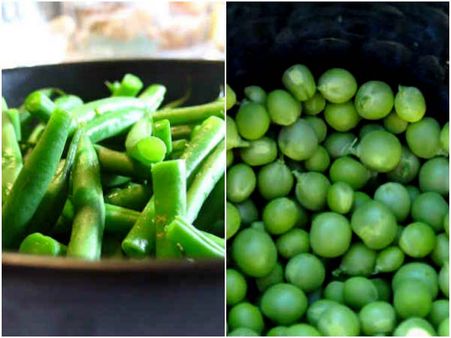
1. Include Lots Of Vegetables:
Vegetables contain a lot of fibre that is healthy. Vegetables like beans, peas and chickpeas need to be included in the meals during the fasting period of Ramzan.This helps to make the stool soft and easy to pass.
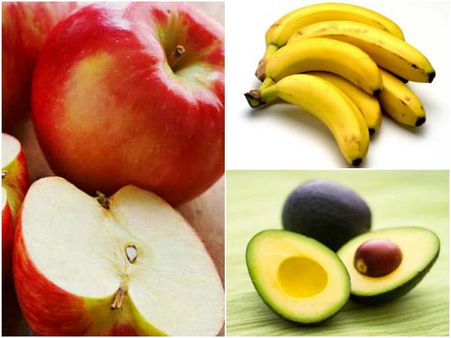
2. Plenty Of Juicy Fruits:
Fruits like apples, bananas, papayas, passion fruit, figs, avocados, etc, that are rich in fibres should be included during the pre-dawn meal. This helps in providing the needed hydration.
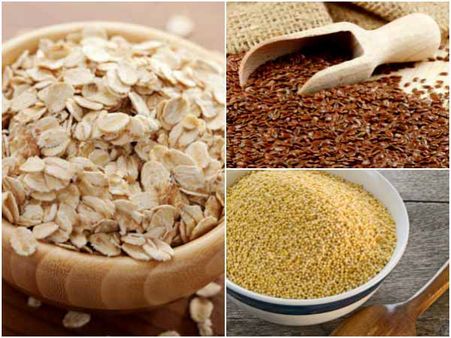
3. Include Whole Grains And Legumes:
Slow-digesting foods like whole grains such as oats, pulses, wheat, lentils, flax seeds, etc, should be included in the meals taken during the fasting period of Ramzan. This helps prevent constipation.
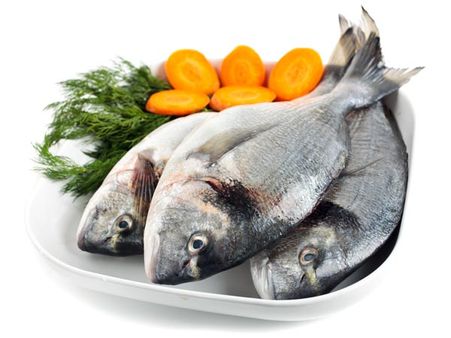
4.Low-fat Products:
Skinless chicken, fish, etc, contain low fats but at the same time are a rich source of protein. This helps in building up the immune system during the fasting period of ramzan. Also, make sure to drink plenty of water before and after the fasting period to keep constipation at bay.

5. Include Probiotics:
Probiotics like yougurt helps in preventing constipation that is caused by an intake of low-calorie foods, which happens during the time of Ramzan. Make sure to include more of this.
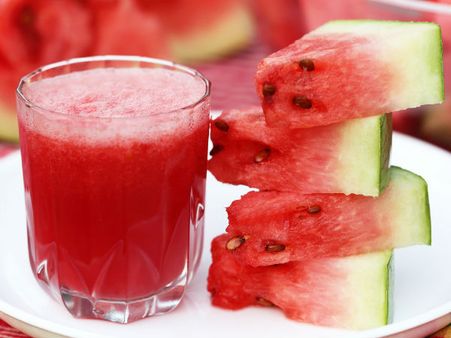
6. Include Lots Of Juice And Water:
Apart from water, including fresh fruit juices can also help prevent dehydration and constipation during the Ramzan fasting. Include tender coconut water, watermelon juice, orange juice, pineapple juice and grape juice to keep dehydration at bay.

7. Include Dates:
Dates should be included in the diet during the fasting period of Ramzan. Dates are a good source of fibre, carbohydrates, potassium, magnesium and also sugar. This helps in keeping the sugar level in control and prevents dizziness.

8. Include Almonds:
Of all the dry fruits, almonds are considered to be one of the best foods to be consumed during the fasting period of Ramzan. Almonds are rich in protein and fibres and contain less amount of fats.
-
 yoga spiritualityRamadan 2024: Why Is Taraweeh Prayer So Special? Can You Offer Taraweeh Prayers At Home?
yoga spiritualityRamadan 2024: Why Is Taraweeh Prayer So Special? Can You Offer Taraweeh Prayers At Home? -
 yoga spiritualityRamadan 2024: What Are First Ashra Dua, Second Ashra Dua, And Third Ashra Dua During Ramzan
yoga spiritualityRamadan 2024: What Are First Ashra Dua, Second Ashra Dua, And Third Ashra Dua During Ramzan -
 yoga spiritualityRamadan 2023: Rules For Unmarried Couples: Kissing, Touching, Physical Intimacy During Month Of Fasting
yoga spiritualityRamadan 2023: Rules For Unmarried Couples: Kissing, Touching, Physical Intimacy During Month Of Fasting -
 yoga spiritualityRamadan 2023: Date, Moon Sightings, Significance Of Fasts, And Why It Is Considered A Holy Month
yoga spiritualityRamadan 2023: Date, Moon Sightings, Significance Of Fasts, And Why It Is Considered A Holy Month -
 bollywood wardrobeEid ul-Fitr 2021: Gauahar Khan Looks Gorgeous In Her Festive-Perfect Mulmul Kurta Set; Know The Price!
bollywood wardrobeEid ul-Fitr 2021: Gauahar Khan Looks Gorgeous In Her Festive-Perfect Mulmul Kurta Set; Know The Price! -
 bollywood wardrobeEid ul-Fitr 2021: Top 3 Festive Red Kurta Sets For Eid Ft. Gauahar Khan, Mouni Roy, And Aditi Rao Hydari
bollywood wardrobeEid ul-Fitr 2021: Top 3 Festive Red Kurta Sets For Eid Ft. Gauahar Khan, Mouni Roy, And Aditi Rao Hydari -
 festivalsRamadan 2023: Myths And Facts About Ramadan Fasting
festivalsRamadan 2023: Myths And Facts About Ramadan Fasting -
 festivalsRamadan 2023: Sehri And Iftar Timings That You Need To Know
festivalsRamadan 2023: Sehri And Iftar Timings That You Need To Know -
 bollywood wardrobeEid-Ul-Fitr 2020: Hina Khan, Sara Ali Khan And Other B-Town Divas Give Ethnic Fashion Goals In White
bollywood wardrobeEid-Ul-Fitr 2020: Hina Khan, Sara Ali Khan And Other B-Town Divas Give Ethnic Fashion Goals In White -
 make up tipsLook Gorgeous With These Ramzan-special Beauty Tips
make up tipsLook Gorgeous With These Ramzan-special Beauty Tips -
 wellnessRamadan 2023: Health Benefits And Risks Of Fasting During Ramadan
wellnessRamadan 2023: Health Benefits And Risks Of Fasting During Ramadan -
 diabetesRamadan And Diabetes: Risks And Solutions
diabetesRamadan And Diabetes: Risks And Solutions


 Click it and Unblock the Notifications
Click it and Unblock the Notifications



